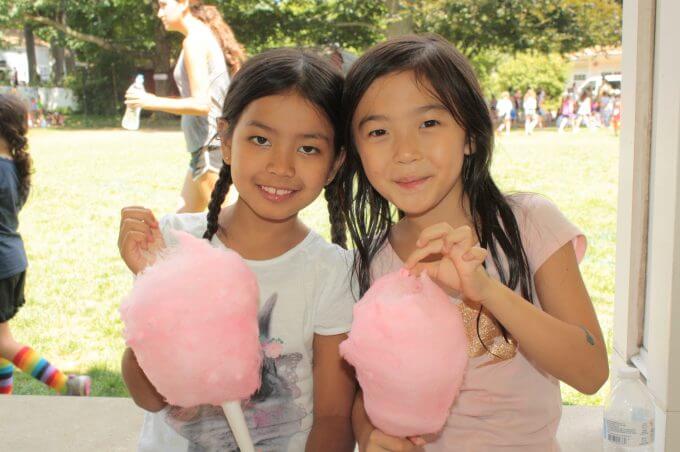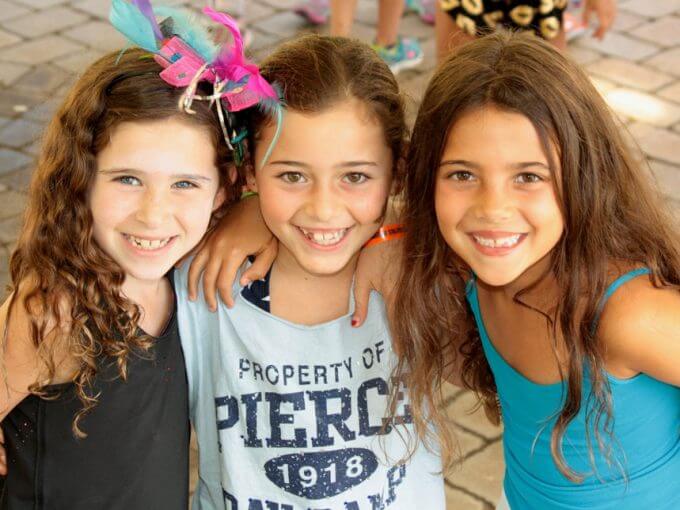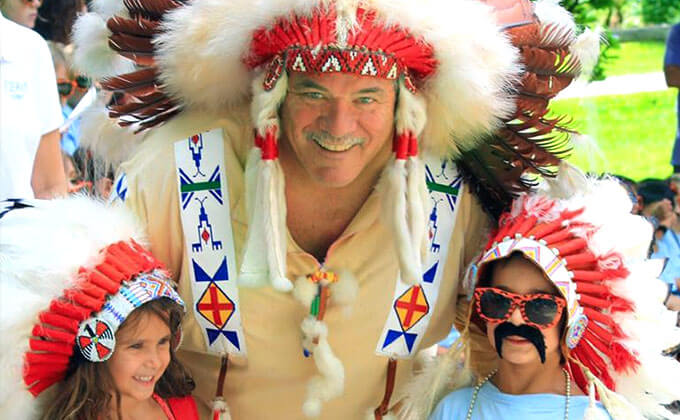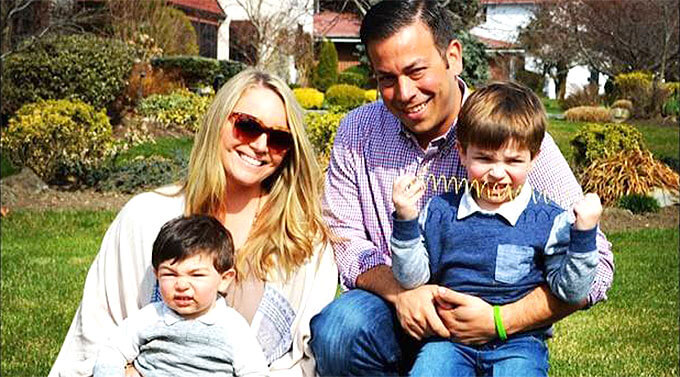We take vacations for many reasons. To explore the world. To retreat from the world. To repair broken hearts. To test new hearts, or to rest. To push ourselves to our physical limits. But the most profound vacations are the ones in which we reinvent ourselves. A tall order; how can a few short weeks alter the course of a lifetime? Two words: summer camp.
This vacation was foisted upon me when I was 12. Only my mother, who is French, would locate a place in which campers were required to speak French — and this, in the middle of bucolic Vermont. Only my mother would find a place so fixated on clothing that we had to go to a special store in New York City that sold only outfits for camps and schools. A world I had never even imagined existed. I packed a large trunk with French blue cotton shorts and shirts, the requisite red wool blazer and white uniform for Sundays, and lots of knee socks.
I had rarely been away from home; I was not even allowed to join sleepovers. I cried with homesickness for exactly one night. Those eight weeks, at Ecole Champlain, on the shores of Lake Champlain, just outside Ferrisburg, turned out to be a highlight of my life. Thinking back on this time, I realize that subconsciously, I’ve spent years working my way back to living as if I were still in summer camp.
The schedules. Every single hour of every single day was regimented. No decisions to make. Just show up for your assigned sport. No empty hours in which to find boredom, or to wallow in longing or anxiety. Activity! And it all started with a shotgun of bugle music, blasted over loudspeakers, a choreography of scheduling from reveille to taps. To this day, when I hear taps, I choke with the beauty of a world so aptly demarcated. It is a wonder that I never joined the military.
Camp days unfurled through hours of things utterly foreign to me: tennis, and beadwork, and operetta (yes, we sang farces, in French, of course) and swimming, miles of swimming in water so cold we would feel as if our hearts and lungs would explode in those first few weeks of summer. Water so dark we couldn’t see our fingers as they pulled through a stroke.
My childhood had been one of public school days, then hours at the piano practicing for the competitions in which my mother would enroll me, then hours and hours of homework. I didn’t have “play dates” — what a waste of time, and besides, these American girls weren’t properly raised, and their mothers! They wasted time playing tennis, and gardening. I certainly wasn’t allowed to participate in anything that involved balls hurtling at me at high speeds. I might break a finger.
Suddenly, my life was one long, wonderful play date. I developed deep friendships, with people of my choosing, and we not only talked about everything, a first for me, but we did things together. Active, sporting things.
Even more startling to me was that I actually had — no, I was — a body that enjoyed moving, loved running, and hiking, and canoeing, and bows and arrows, and swimming long distances. What’s more, I was good at some of the very things that would have horrified my mother, who, it turns out, really had no idea what was going on in Vermont. Sailing, for instance. I’d never set foot in a boat. Once I learned about trimming sails to the wind, I never wanted to leave the boat. Except to get behind a boat, when I learned to water ski.
That was the true breakthrough. Part of the motivation, at first, were the adorable counselors. But soon I fell in love with the speed. Never mind that everything had to be done in French — “Vas-y!,” we would shout, “Go on!,” and young men (of course) would gun the engines, pull us off the dock and tow us out onto glassy black waters. Wipeouts often involved losing bits and pieces of bathing suits. But nothing could dim the pleasure of wiping out — being allowed to wipe out, being urged not to be careful, being pushed to the edge of what I could do, thrilling to the burn of water across my shoulder when I skidded to the edge of a ski in a low slalom.
Those red blazers, our Sunday formal attire, had one purpose. They were meant to be decorated with badges — badges for achievement in swimming, diving, tennis, you name it. We were all intensely privileged, as we were reminded, over and over again. There was something called character-building, and we were awarded pins for kindnesses done, moments of leadership. I still do not believe that being competitive is a bad thing — and why exactly are we raising children to think they are always winners? — because I learned to celebrate other people’s wins, too. And I learned that while a race is great fun, it isn’t everything.
Dirt under my nails. I didn’t touch a piano the entire summer, though I wrote home saying I practiced every day. Dirt between my toes. We were barefoot in grass for hours at a time — and now, naturally, I have to check my body for ticks if I so much as set foot on a lawn. No one worried about such things then.
Cold water on our faces, rough floorboards under our grimy feet, planks of wood for toilets. Huge group breakfasts with endless amounts of food, fragrant from an industrial kitchen, with a morning prayer sung in French. “Bénissez-nous, Seigneur.”
And the darkness. I had never been given permission to have a night life, and the possibility of one outside in the dark would not have even occurred to me, but at camp we had entire nighttimes of rituals that were about as enthralling as anything I’ve ever experienced. Give me a campfire over a gala ball anytime. We would hike a long trail at dusk to a clearing in the woods, where logs piled in tepees were already burning hot, sparks shooting up into the canopy of trees. We sat on the soft, piney ground in circles. The counselors played guitars, and we sang our hearts out. Mostly the songs were in French, of course (because the counselors were all French, too), but I noticed that the girls who didn’t have French mothers got the hang of them. We did, however, sing “Kumbaya.” And I still love it.
I am a creature of habit. When I find somewhere I like, I settle. I don’t have a bucket list of places I want to see before I die. But I do have a bucket list of ways I want to live until I die. When I visit any new place, I’m filled with fantasies of how, exactly, I could live in a cottage on the coast of Wales, or a beach shack on the shores of Baja. Easily. What I learned at camp was that I love the absorption into a communal culture, with its structures and values, but that I also enjoy that as a springboard for testing my limits, and that engaging with the magic and beauty of our natural world is deeply meaningful, and comforting, to me. I never want to be far from water, and I need a fireplace.
Eventually, the camp closed down. On its site is a state park. But a few times in my life, I’ve fallen in love with houses in which I could recreate some sense of the freedom, discovery and splendor of those days. Houses that were rough and creaky and could be opened to the outdoors without worry of what damp air might do to them. Houses against which I could bank up kayaks and canoes. Houses where I could garden, because I can give myself permission to get my hands dirty.
One of the first things I do, wherever I spend my summer vacations, is to find the spot for a campfire. Nothing gives me greater pleasure than to mix a Manhattan, head into the woods surrounding my house in Rhode Island, set up my campfire, and watch it burn.
I have a dear friend from camp days who lives nearby in summer. She and her spouse came over one evening with their young children. I had all the activities planned: the walk on the mossy path, the search for a salamander that had mysteriously appeared on my doorstep, and a campfire.
I had piled it high, carefully structured, just as I had been taught. I lit a match to it while the children sat on a couple of big rocks I had had dragged up to form a circle, and as the sky darkened, and the flames began flicking high up into the air, my dear old camp friend and I burst spontaneously into the song that always started campfires, a song neither of us had sung out loud in front of anyone in, who knows, probably 40 years. “Entendez-vous dans le feu”:
“Entendez-vous dans le feu, Tous ces bruits mystérieux?” (“Do you hear, in the fire, all those mysterious noises?”)
The children were saucer-eyed. So this is what grown-ups do at night. So this is the magic and mystery and pleasure of a fire to guard against the dark. And I was enthralled, too, watching those dear faces gathered around the fire. So this is love. And this is being a grown-up camper in the world, forever young enough to wonder at the mystery and magic and pleasure of it all.
Original article published in The New York Times.
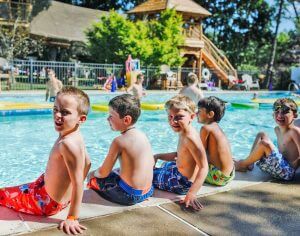 “Young people need models, not critics” and “People are in greater need of our praise when they try and fail, than when they try and succeed” are quotes from John Wooden and Mr. Unknown. These quotes are right in line with how we teach our new and returning staff each summer.
“Young people need models, not critics” and “People are in greater need of our praise when they try and fail, than when they try and succeed” are quotes from John Wooden and Mr. Unknown. These quotes are right in line with how we teach our new and returning staff each summer.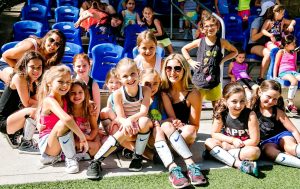




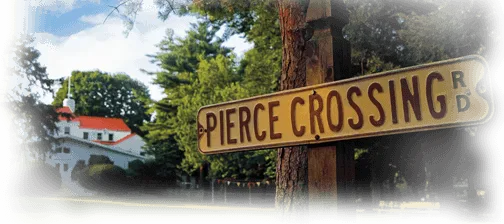













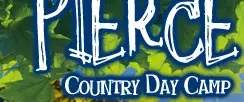


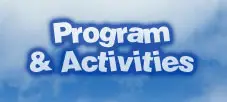



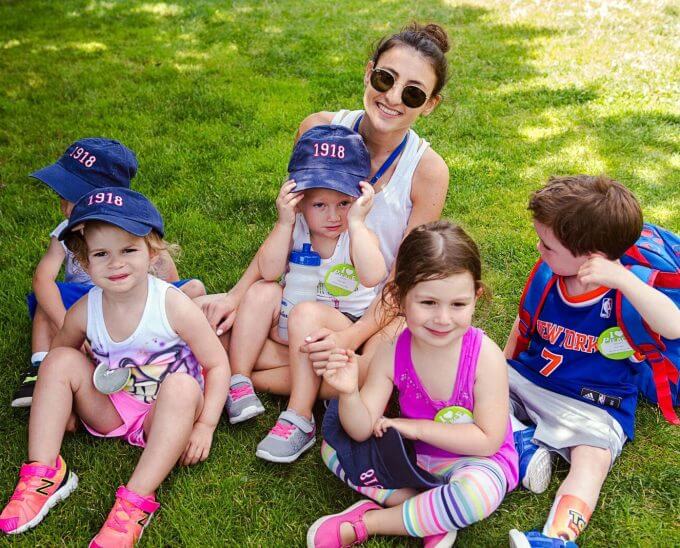

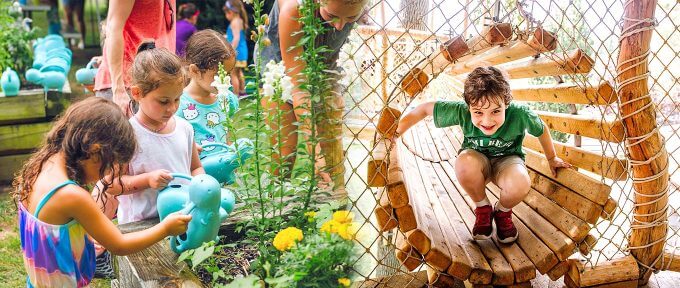
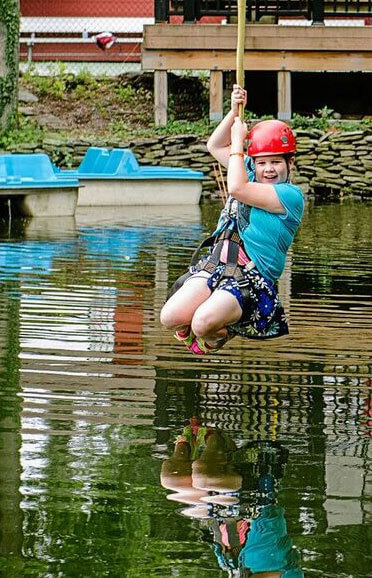
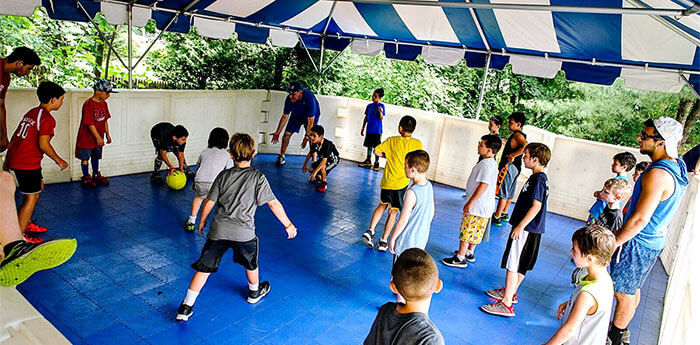
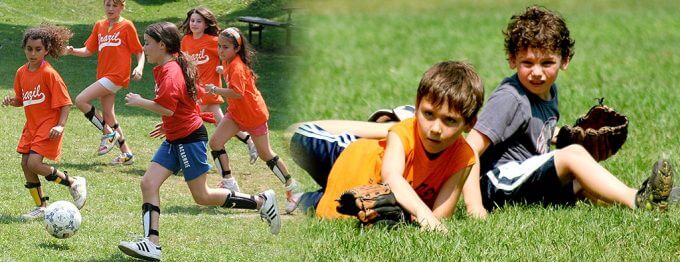
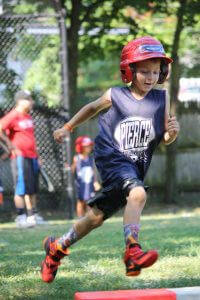 Sport plays a big role in teaching values and principles. Teamwork, leadership, work ethic, sportsmanship, and trust are all part of the game and are factors in how we make the most of our lives. Through sports, kids can see the results that come from repeating certain skills in order to perfect them. They develop a more positive self-image through personal achievement and learn that if they spend enough time on a task they will eventually become better at it. At Pierce, we stress fundamental skill development through our extensive daily schedule and specialized clinics. Our goal is to help the young people of today learn these lessons in order to have better lives tomorrow.
Sport plays a big role in teaching values and principles. Teamwork, leadership, work ethic, sportsmanship, and trust are all part of the game and are factors in how we make the most of our lives. Through sports, kids can see the results that come from repeating certain skills in order to perfect them. They develop a more positive self-image through personal achievement and learn that if they spend enough time on a task they will eventually become better at it. At Pierce, we stress fundamental skill development through our extensive daily schedule and specialized clinics. Our goal is to help the young people of today learn these lessons in order to have better lives tomorrow.
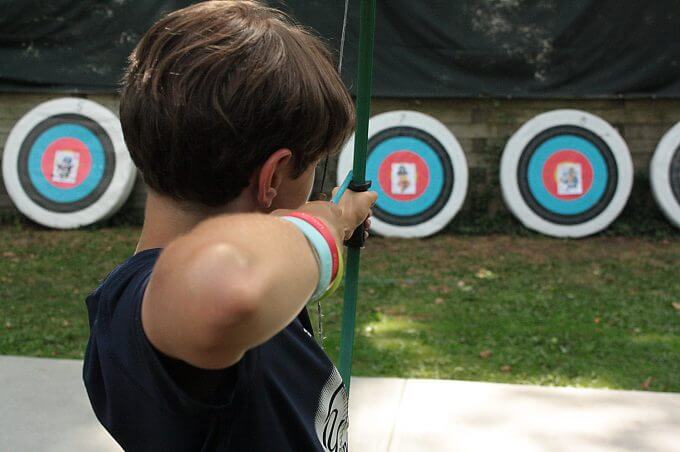
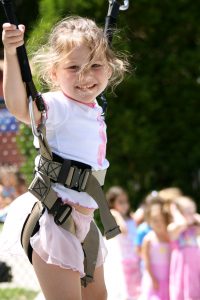
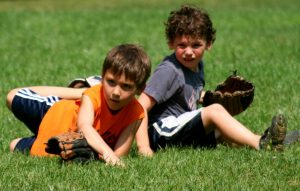 Bungee – Enjoyed by all… Now scheduled weekly for 6’s!
Bungee – Enjoyed by all… Now scheduled weekly for 6’s!